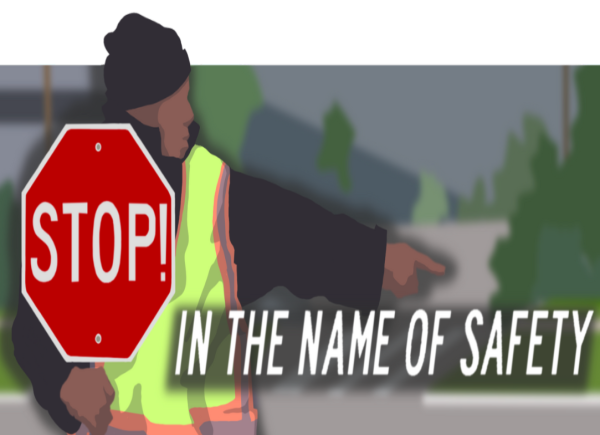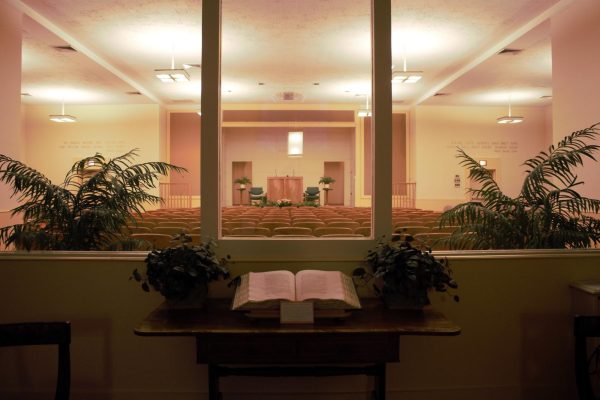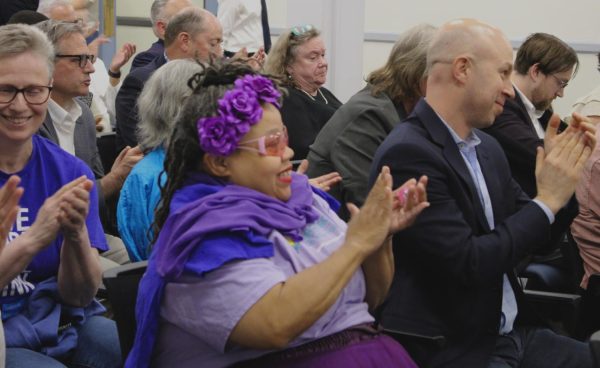Students on the complexities of balancing work and academic commitments
All of us ETHS students will need to work at some point in our lives—whether it’s to make a little bit of pocket change, to pay for food and rent or to support our families. As adults, we’ll be expected to make work our priority. In fact, many of us will be expected to sacrifice aspects of our personal lives and possibly our mental and physical health at times.
But, right now, as students, we haven’t reached that point. We aren’t (yet) at the level of maturity of working adults. Yet, although most high school students don’t work out of necessity, many students do work to earn some spending money, meet new people, create a solid schedule for themselves, or take up some of their free time. But still, sometimes even at part time jobs, they are expected to make sacrifices. Junior Kyla Wellington recalls that such sacrifices have taken a toll on her social life.
“I feel like work and school are my main priorities. So I forget to like take time for myself or take time to like check up on my friends and stuff like that. At this age, working shouldn’t be our main focus right now. And I feel like our mental health and our social life are really important, especially in our last years of high school,” Wellington says.
On the other hand, Junior Iris Wroblewski views taking on a part-time job as a positive influence on her social life.
“I love my coworkers so much. And I look forward to going to work even though I know I’m going to be tired [after],” she says. “I think [working is] a really good way to have something to do on the weekends or after school. I used to be really bored, and now I [have] something fun to look forward to… Socially, I have coworkers that I’m really good friends with.”
Senior Oliver Pratt agrees that working hasn’t negatively affected his social life.
“I work very close to my house, [and] I work very close to where my friends hang out. Socially, it hasn’t really [impacted me]. I just learned to come late to [social] events and usually to bring food,” he says.
Working has many positive impacts—the biggest one being a steady income.
“Disposable income is a really cool thing that I really like,” Pratt says.
Many working students also say that having a job has positively impacted them in ways other than having spending change. Pratt says that his job has made him a more responsible and flexible person.
“I learned to take a lot more responsibility and my problem solving skills have increased. It’s become a lot easier for me to review and solve problems after working,” he says.
In addition, Wroblewski says that her job has taught her how to put herself first.
“I think being at work has motivated me to think more about myself,” she says. “I’ve really improved with how I take care of myself, and I realize how important it is to take care of myself.”
Deciding to take on a job has been a positive decision for many students. Unfortunately, not all students view working as a choice. Some students work to support their families—especially in times of COVID.
“Some students work [for themselves,] and some students have to work to keep their families afloat. And I think that that’s important to think about,” Wroblewski says. “There are students that are providing for their families. Students have a lot to do outside of school that might not be in their control.”
As students work towards earning good grades while also committing to their part time jobs, some priorities may fall to one side of the equation. Balance while being a full time student and also having a part time job, may seem impossible. Being forced to put work first can take up the time and energy that students need to study, complete homework and keep their grades up.
“Sometimes, I will have work in the middle of when I’m doing my schoolwork, so I’ll have to stop the school work in order to go to work,” Wellington says.
She goes on to explain the pros and cons of the balancing act that comes with working and being a high school student simultaneously.
“The benefits are [that] you learn independence away from school. But the cost is that you might not have much free time because you could get caught up with working and school and you might forget about the social aspect”
Your donation will support the student journalists of the Evanstonian. We are planning a big trip to the Journalism Educators Association conference in Philadelphia in November 2023, and any support will go towards making that trip a reality. Contributions will appear as a charge from SNOSite. Donations are NOT tax-deductible.










